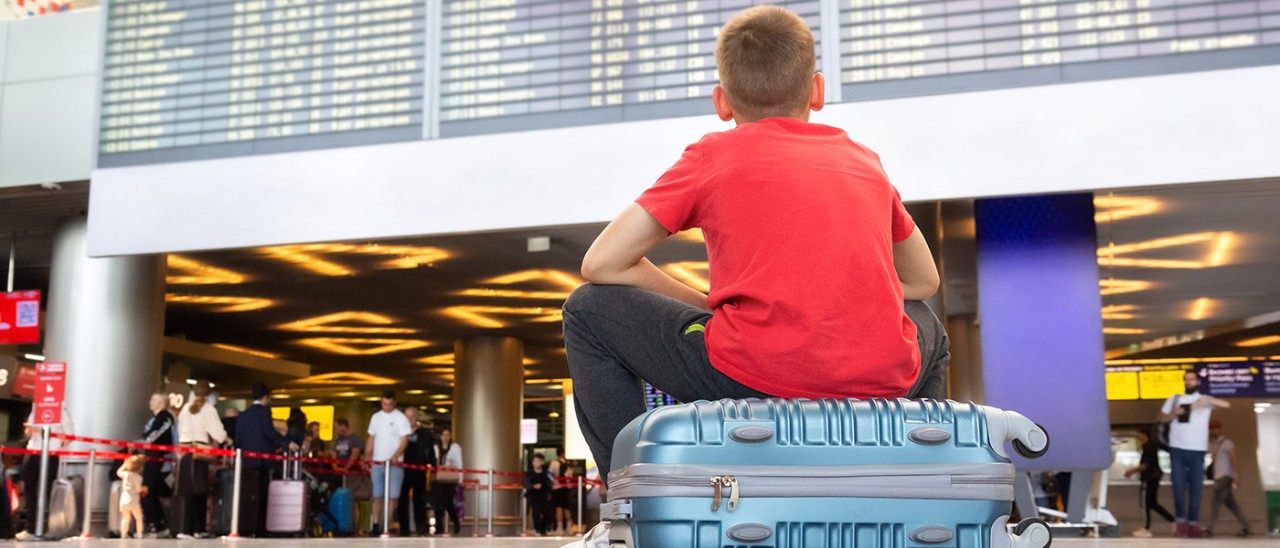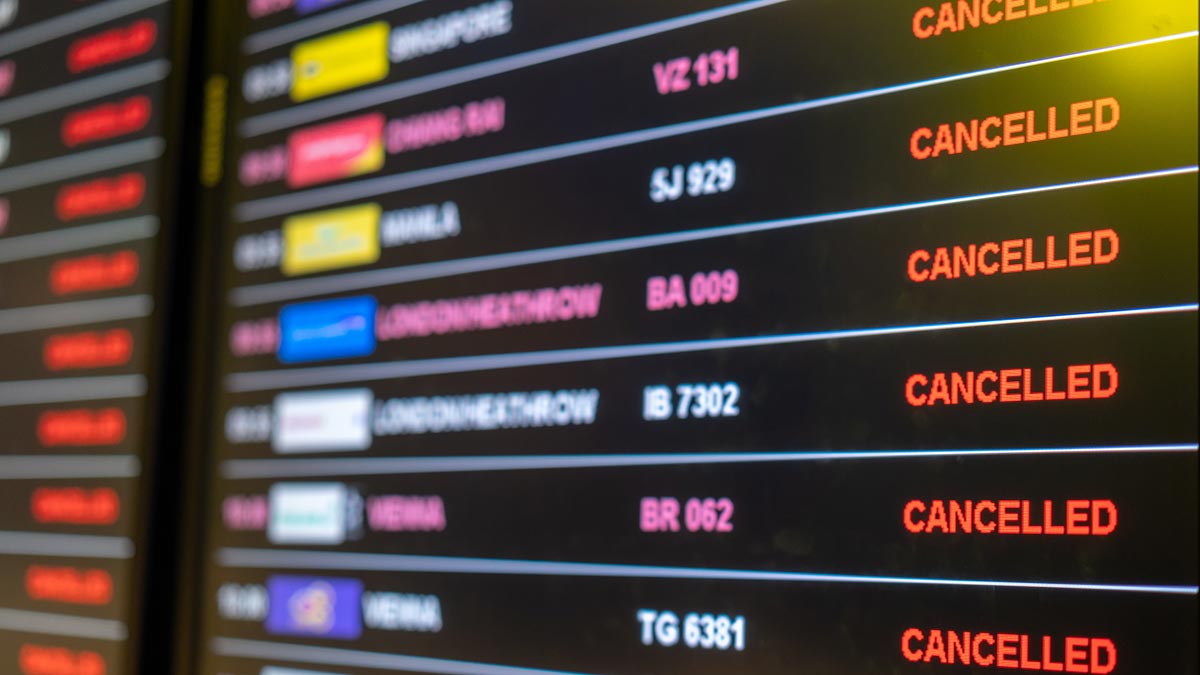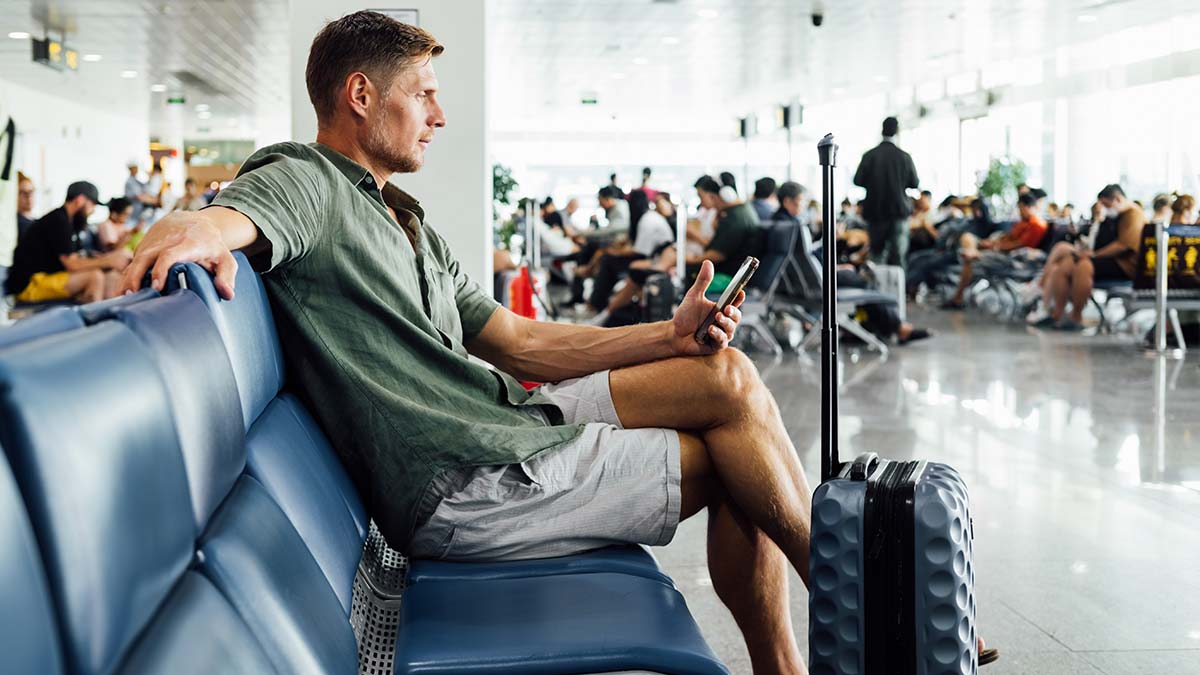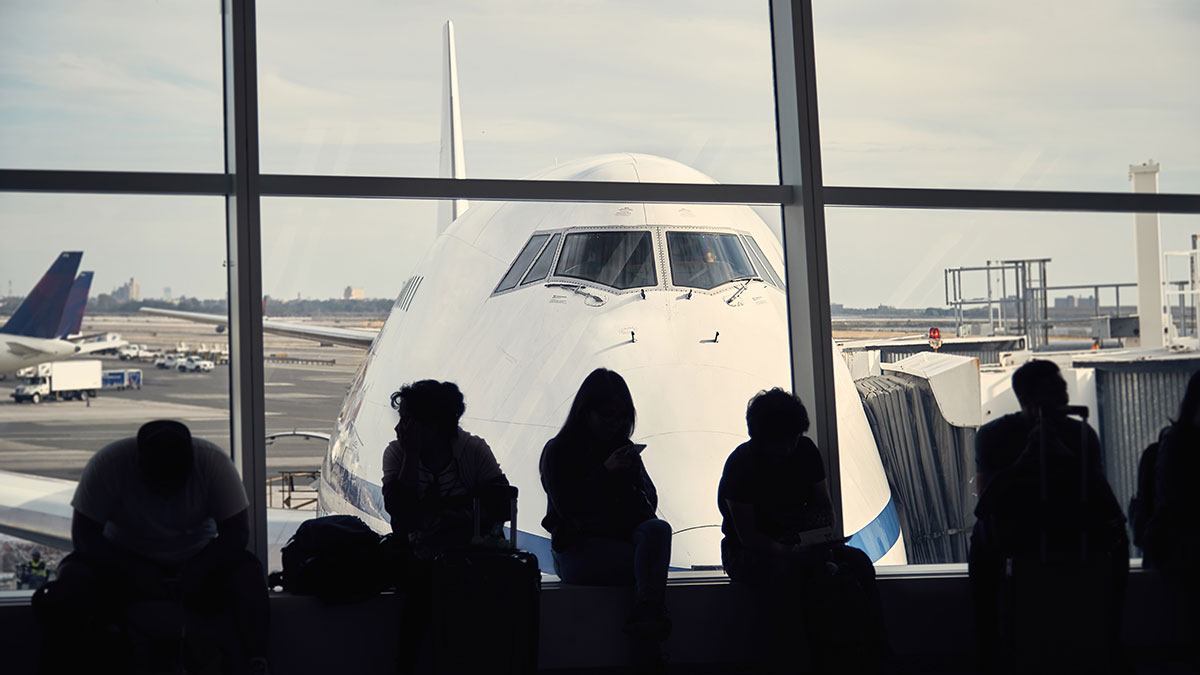An overseas road trip is a great way to explore new countries, but you may find different road rules, driving conditions and licence requirements such as International Driving Permits make it a challenge. Here’s what you need to know to stay safe.
What to do if your flight is cancelled or delayed

Flight delays and cancellations are disruptive and can have a significant impact on your travel plans, so it’s important to know what to do when they arise.
Anyone who travels frequently will know that delays to an airline’s published schedule can be inevitable. But a major delay or a cancellation – whether you’re in Australia or overseas, flying out or returning home – can be stressful, and it’s not always clear what happens next and who can help you.
Here’s a comprehensive guide to how often flights are delayed and cancelled in Australia, the responsibilities the airlines have in these situations and your rights to a replacement flight or compensation if you’re impacted.
In this article
- How many flights get delayed or cancelled in Australia?
- Are flight times guaranteed by the airline?
- How will I know if my flight is delayed?
- What will happen with a major flight delay or cancellation?
- What happens if I miss a connecting flight?
- What rights do I have for compensation from an airline?
- Will my travel insurance cover me for flight delays and cancellations?
How many flights get delayed or cancelled in Australia?
The sheer scale of airline activity around the world will inevitability lead to delays and cancellations. In Australia, more than 15,000 international flights routinely arrive or leave our shores each month, while the domestic carriers are making about 50,000 flights every month. Overall, more than 60 airlines and 8.5 million people are taking off or landing in and around Australia each month.
How are they doing in terms of punctuality and reliability? Well, you’ll be the ultimate judge, but the federal Bureau of Infrastructure, Transport and Regional Economics (BITRE) does monitor domestic airline performance and its figures reveal a long-term average on-time departure rate of 81.9 per cent.
The rate of cancellations has a long-term average of 2.2 per cent, or about 1000 flights a month based on current air traffic.
More: Overseas travel checklist: All the things to do before you go

A travel insurance policy may help cover expenses incurred as a result of a flight cancellation. Image: Getty
Are flight times guaranteed by the airline?
In a word: No. Flight times are not guaranteed by airlines in Australia.
By purchasing a flight ticket, you are entering into a contract with the airline to transport you from one place to another. They must deliver this service in a reasonable timeframe, but the ticket brings with it a vast array of terms and conditions.
You should be able to find these (sometimes described as ‘Conditions of Carriage’) on the airline’s website, which sets down all the details that apply to the flight – including late departures and arrivals and cancelled flights.
The conditions may vary between airlines, as well as with the class of fare, and you should expect that every attempt will be made by the airline to operate in accordance with its advertised schedule.
Qantas, Virgin and Jetstar also have a customer charter that outlines the service standards you can expect from them, while most international airlines operating in Australia have similar customer service protocols.
The bottom line, however, it that there’s no guarantee the plane will take off at the time that’s printed on your ticket.
With this in mind, consumer advocates recommended that when you book your flight you may wish to consider a class of fare that gives you better scope to change flights or make a new booking at short notice if you’re impacted by a delay or cancellation.
How will I know if my flight is delayed?
If the scheduled departure time changes after you’ve bought a ticket, the airline or its authorised agent should make a reasonable attempt to let you know.
This could be via phone, text and/or email, sometimes based on the information you provided when purchasing your ticket.
In situations such as these, the benefits of booking through a reputable travel agent can’t be underestimated. Full-service agencies, such as the RACV Travel and Experiences team, can help provide information and support with flight changes, delays and cancellations.
It’s also strongly recommended that you take it upon yourself to check that your flight times haven’t changed, well in advance of your scheduled departure.
Real-time updates should be provided by the airline on its website. Your point of departure, such as Melbourne Tullamarine Airport, may also provide live scheduled departures and arrivals to help you keep track of your flight.
Give yourself plenty of time to arrive at the airport, or to connect between flights, and keep a close eye on the flight departure information once you’re at the terminal. If you fail to check the departure times, the airline may not be liable for any loss you suffer as a result.
RACV Members save on airport transfers and parking around Melbourne Tullamarine Airport.

An airline's conditions of carriage do not include a guarantee of flight times. Image: Getty
What will happen with a major flight delay or cancellation?
Any major change to your flight, which significantly impacts you and your travel plans, should hopefully bring a swift response from the airline.
If you’re at the airport already, your immediate response may be to get onto the next available flight. Staff at the airline’s service desk should try to do their best, but they are at the mercy of other bookings and will always act in accordance with the company’s policies and procedures.
These are often subject to the length of the delay and whether or not the delay or cancellation was due to events within the airline’s control. It may also come down to whether you bought a budget ticket or are travelling with a budget airline.
When the events are within the airline’s control, such as issues relating to the aircraft’s performance, refuelling, cleaning or baggage handling, the response will often include rebooking you on the next available flight at no extra cost and possibly covering expenses (up to a point), such as meals and accommodation, if you’re facing a long wait.
The option of a full refund or flight credits should also be offered if you do not wish to continue travelling, depending on the airline and the class of fare. (A budget ticket may have no refund at all.)
If the delay or cancellation is determined as beyond the airline’s control, such as bad weather, air traffic control issues or an airport security threat, the airline may only be willing to try and book you on the next available flight or, if that’s not acceptable to you, provide a refund.
If the airline’s not at fault, the level of assistance may be considerably less than if the airline was responsible for the delay. But, again, some airlines may not offer a refund at all.
Another thing to note is that sometimes airlines overbook seats to avoid losing money when passengers don't show or miss connections. This means you may be denied boarding even when you have a valid ticket and are checking in on time. In these cases, expect to be offered a seat on the next available flight or a refund.
Depending on the situation and your individual circumstances, you may need to purchase a new ticket from that airline or another carrier. Then it becomes a matter of whether you’re entitled to compensation.

Airlines have compensation policies that detail what they'll do in case of a flight delay or cancellation. Image: Getty
What happens if I miss a connecting flight?
If a flight delay or cancellation causes you to miss a connecting flight, the original airline may help with a new booking. But as we’ve already discussed with a single plane journey, the level of assistance will come down to that airline’s policies and procedures.
It may hinge on whether the connecting flight is with that original airline or one of its affiliates, in which case rebooking the next available flight may be possible.
If you’re with a different carrier for the connecting flight, you will likely need to contact that second airline for assistance. There’s every chance you’ll have to pay for a new ticket, so be prepared.
If you’ve booked through a travel agency, they should also be able to help with organising new flights and providing a broad range of support.
What rights do I have for compensation from an airline?
Travel services in Australia, including flights, come with a guarantee under law that services will be provided within a reasonable time after being delayed or cancelled.
However, as the Australian Competition and Consumer Commission (ACCC) points out, there’s no one set definition of what will be a ‘reasonable time’ and any decision on compensation for a flight delay or cancellation could end up being made in a court or tribunal.
Your entitlement may depend on the circumstances, such as who was at fault. It may also come down to individual circumstances, like the reason for travel.
The ACCC makes it clear that an airline’s compensation policies and procedures do not replace the consumer guarantees that automatically apply to you when you purchase your ticket.
You will hopefully get a satisfactory resolution by dealing with the airline directly. If not, you can take other steps to resolve the dispute.
These include contacting Consumer Affairs Victoria and the industry-funded Airline Customer Advocate (for Qantas, Jetstar and Virgin), which handles complaints about flight delays and cancellations, among other issues.

Organising travel insurance as soon as you book your ticket is highly recommended, even if your flight is some time away. Image: Getty
Will my travel insurance cover me for flight delays and cancellations?
Expenses associated with flight delays and cancellations can extend to emergency personal telephone calls, meals, alternative transport and accommodation.
Your ability to claim expenses such as these through travel insurance will depend on the specific policy you have taken out, but a policy with wide coverage might provide a range of measures designed to support you in times like these.
In most cases, insurance cover for flight delays that are outside your control takes effect after a defined period, usually at least six hours.
Expenses are normally subject to your ability to be reimbursed by the airline directly (or anyone else involved), but most travel insurance policies will specify a daily limit for travel delay. There may also be a maximum limit per adult.
There’s likely to be a range of exclusions, so always read the product disclosure statement (PDS) carefully to know what you are covered for. For example, you may not be covered if a flight cancellation, delay or rescheduling was caused by the transport provider.
If you have to cancel a flight yourself due to unforeseen circumstances, your travel insurance policy may also help reduce any financial impact. Again, the level of cover provided will depend on the specific plan.
Note that any cancellation fees and lost deposit benefits that come with your insurance cover should apply as soon as you purchase the policy, which can be well before you board the plane.
So, organising your insurance as soon as you book your ticket is highly recommended.
Read more: When to book travel insurance


